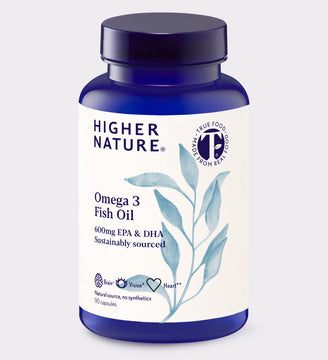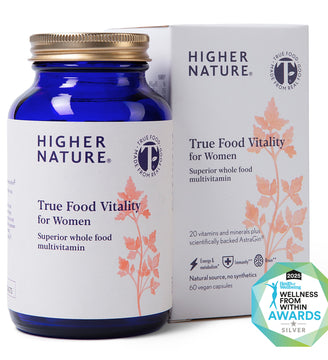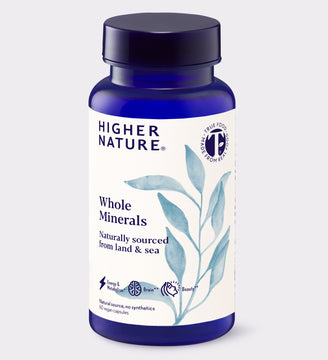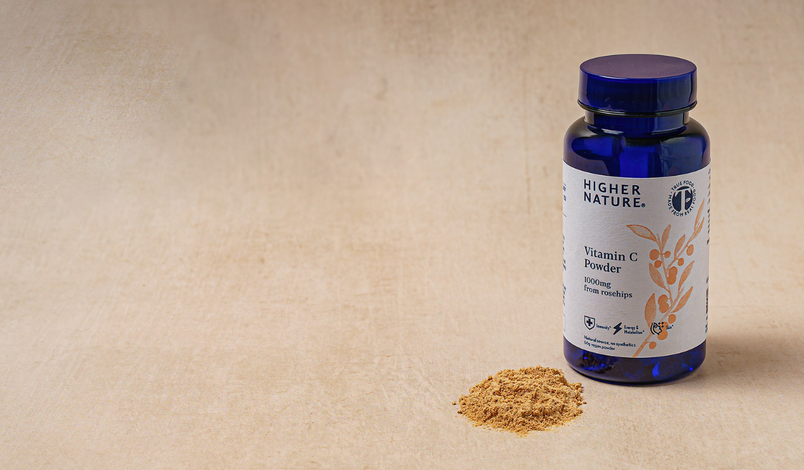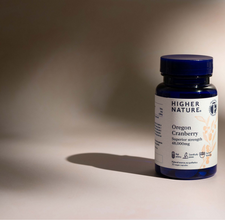
Prepare to do battle with the common cold
Higher Nature Nutrition Team
Our immune system can be vulnerable to attack at any time of the year, but the majority of colds and flu-related illnesses are caught during the colder months, and the classroom or place of work are ideal breeding grounds for the nasty bugs that cause them.
We’re all familiar with the symptoms: the tell-tale tickle at the back of the throat swiftly followed by the dreaded ‘atchoo’ and then the scowl of your soon to be afflicted colleague. You know the look. Before long the entire office is coughing and spluttering into their hankies and you’re public enemy No.1.
With more than 100 viruses known to cause a cold, it’s hardly surprising that most adults experience on average two to four colds a year, and children up to nine.
All the more reason to make sure your immune system is as strong as it can be!
Your first line of defence? Your diet. Whenever possible, cram your plate with fresh, seasonal fruits and vegetables.
Good immune-strengthening foods include garlic, onions, olives, olive oil, beetroot, peppers, fresh herbs, chillies, sweet potato, carrots, apples, nuts, seeds, tofu, miso, lemon, lime, honey, blueberries... the list goes on, but generally lots of colourful ingredients!
Try to eat all fruits and vegetables as raw as possible to avoid destroying the nutrients during cooking
Good intestinal health is also important. When you are first exposed to a virus, your immune system uses antibodies to bind to the virus in the respiratory and digestive tracts. These antibodies work to prevent the virus from entering the body further, and also identify it to be destroyed.
Roughly 70% of your active immune cells are found in your gut, and they don’t work very well without the ‘good bacteria’ that live there. Think of them as your very own internal defence force! Live, natural yoghurt is a good food source, and if you’re supplementing with live bacteria aim for 5-25 billion friendly bacteria daily.
Specific vitamins and minerals can also lend support. Vitamin C is of course widely documented for its immune system potential; in particular, viruses would appear to find it hard to survive in a vitamin C-rich environment. Food sources include peppers, watercress, cabbage, broccoli, cauliflower, strawberries, lemons, kiwi fruit, melon and tomatoes, or keep levels topped up with a vitamin C supplement.
Vitamin D, found in eggs or oily fish such as salmon or sardines, can also be very useful for strengthening the immune system but it needs to be in the form of D3 (or Cholecalciferol) when taken in a vitamin D supplement.
The mineral zinc is also an integral nutrient for a robust immune system but is often overlooked. Food sources include oysters, shellfish, liver, hard cheese, eggs, whole grains, quinoa, seeds, lentils, avocados, pulses, brazil nuts and almonds.
You should also think about increasing your antioxidant supply to help neutralise the harmful ‘free radicals’ produced by foreign invaders.
Both vitamin C and zinc are important antioxidants but there are many other potent sources including anthocyanidins (found in blueberries, blackberries, prunes and black grapes), carotenoids (carrots, apricots, sweet potatoes, squash and dark green leafy vegetables) and lycopene, found in cooked tomatoes.
And what not to do?
If you smoke, stop. We all know that smoking is bad for us, but what you may not know is that it also weakens the immune system, making you more prone to colds and flu.
Limit your alcohol intake to a couple of units no more than twice a week and reduce your consumption of refined sugar as it puts strain on the immune system.


